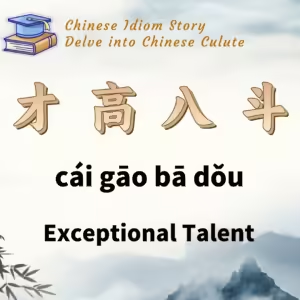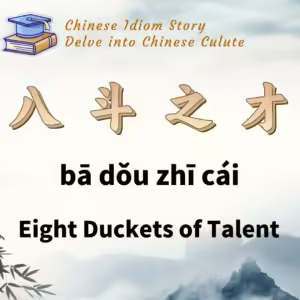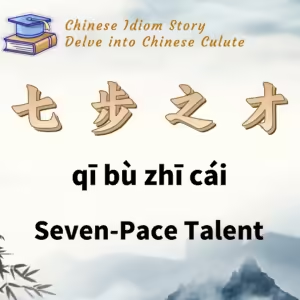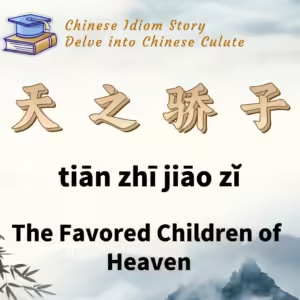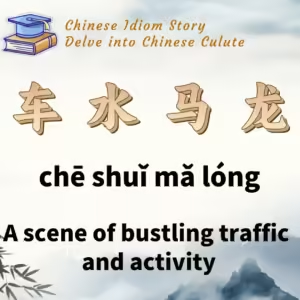
Chinese Idiom: 清尘浊水 (Qing Chen Zhuo Shui)
English Translation: Clear dust and murky water
pīn yīn: qīng chén zhuó shuǐ
Idiom Meaning: This idiom metaphorically expresses the idea of separation and the difficulty of reuniting, suggesting that certain individuals or entities may never meet due to their differing circumstances.
Historical Source: From Cao Zhi’s 七哀诗 (Poem of Seven Laments).
Idiom Story:
Cao Zhi was a remarkable poet and a member of the prominent Cao family during the Three Kingdoms period. He was the son of the powerful warlord Cao Cao and was favored for his intelligence and poetic talent. As a young man, Cao Zhi garnered much attention for his skills, leading his father to consider making him the heir to the throne. However, due to his impulsive nature and erratic behavior, Cao Cao ultimately decided to appoint Cao Pi, his elder son, as his successor.
After ascending to the throne, Cao Pi grew wary of Cao Zhi, perceiving him as a potential threat. Despite Cao Zhi’s ambitions to serve his country, he found himself unable to realize his aspirations, leading him to express his frustrations through poetry. One such poem, 杂诗 (Miscellaneous Poems), reveals his feelings of longing and helplessness as he gazes out from a pavilion.
In this poem, the first lines depict the scenery outside, while subsequent lines convey his patriotic fervor and his discontent at being unable to serve his country. The relevant lines from 七哀诗 express a poignant metaphor:
君若清路尘,妾若浊水泥。
浮沉各异势,会合何时偕?
These lines can be translated as:
You are like the clear dust carried by the wind, while I am like the murky mud settled in the water.
Because of our differing environments and statuses, when will we ever meet again?
Here, Cao Zhi compares himself to murky water, suggesting his marginalized position, while the “clear dust” symbolizes Cao Pi, representing those in power. The clear and murky elements, by nature, cannot coexist harmoniously, illustrating the deep emotional divide and the hopelessness of their political situation.
As a result, the phrase 君若清路尘,妾若浊水泥 has been succinctly transformed into the idiom 清尘浊水, which conveys the themes of separation and the challenges of reconciling disparate elements, whether in personal relationships or broader societal contexts. This idiom serves as a reminder of the barriers created by social status, circumstances, and the passage of time, often leading to an inevitable parting of ways.

